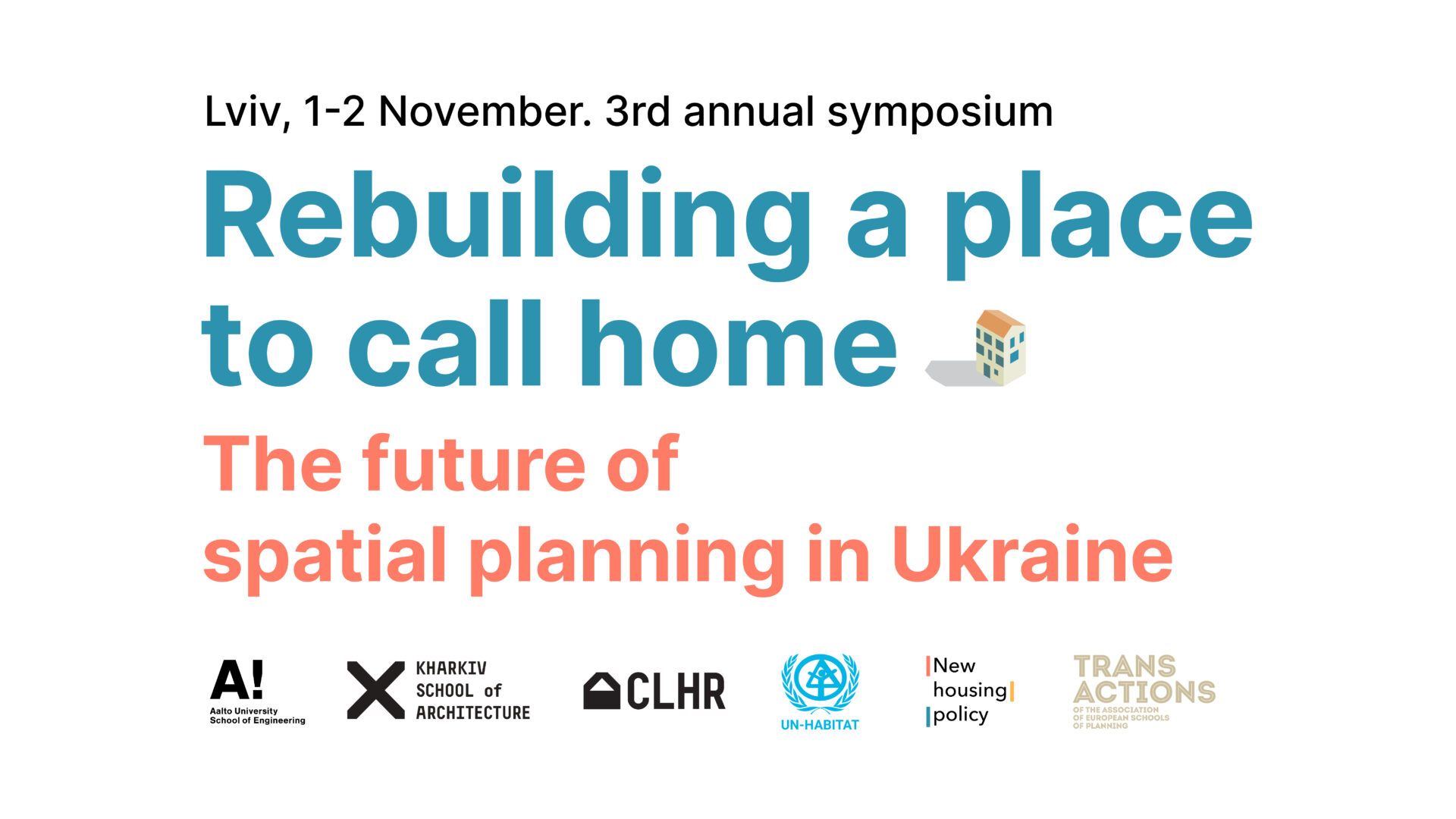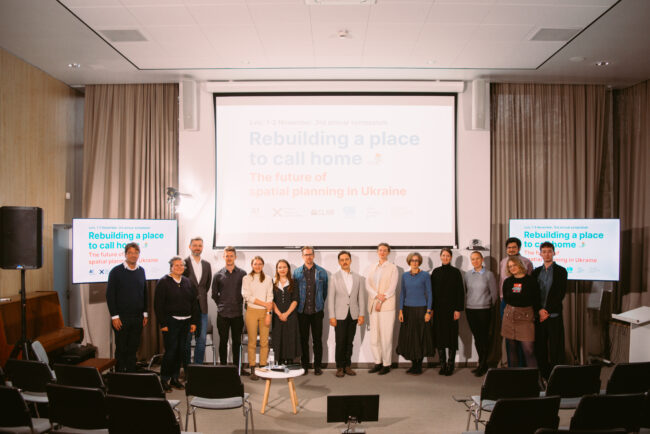III International symposium “Rebuilding a Place to Call Home: the Future of Spatial Planning in Ukraine”
Conferences and seminars
01.
11
2024
Kharkiv School of Architecture, with the cooperation and support of Aalto University, School of Engineering, UN-Habitat Urban Lab Ukraine, New Housing Policy NGO, and AESOP Transactions, hosted the symposium Rebuilding a place to call home: The future of spatial planning in Ukraine on November 1st and 2nd.
An intense two-day programme has revolved around the on-the-ground issues of spatial planning and development in Lviv, followed by a discussion about the spatial planning education for the future graduates and social challenges, and then focused on the range of contributions from Ukrainian and European scholars and planners.
Many thanks to all our participants and speakers: Anisimov Oleksandr, Dominic Stead, Iryna Matsevko, Kolomeytsev Anton, Shevchenko Oleksandr, Stepanyuk Yaryna, Rinne Niina, Mohn Charlotte, Steinkemper Melanie, Bayro Kaiser Fabio, Tregub Mykola, Mäntysalo, Raine, Sykes Olivier, Dembski Sebastian, Evers David, Shevchenko Olga, Malchykova Daria, Markina Mariia, Golubtsov Oleksandr, Kercuku Agim, Makarova Nataliya, Dale Maria, Lozynskyy Roman, Kopacz-Gruzlewska Joanna, Wessling Christoph, Bondar Anna, Belyaev Taras.
The event will be followed by the publication of a special issue in the journal AESOP Transactions, which will include several papers from the symposium presenters.
Interpreters: Olena Nefyodova and Natalia Lehka
Technical support and video: MediaStream.com.ua
Local support: Ukrainian Catholic University, Lviv National Academy of Arts
You can access presentations via link
The recordings in English and Ukrainian are available at the Kharkiv School of Architecture on YouTube.

